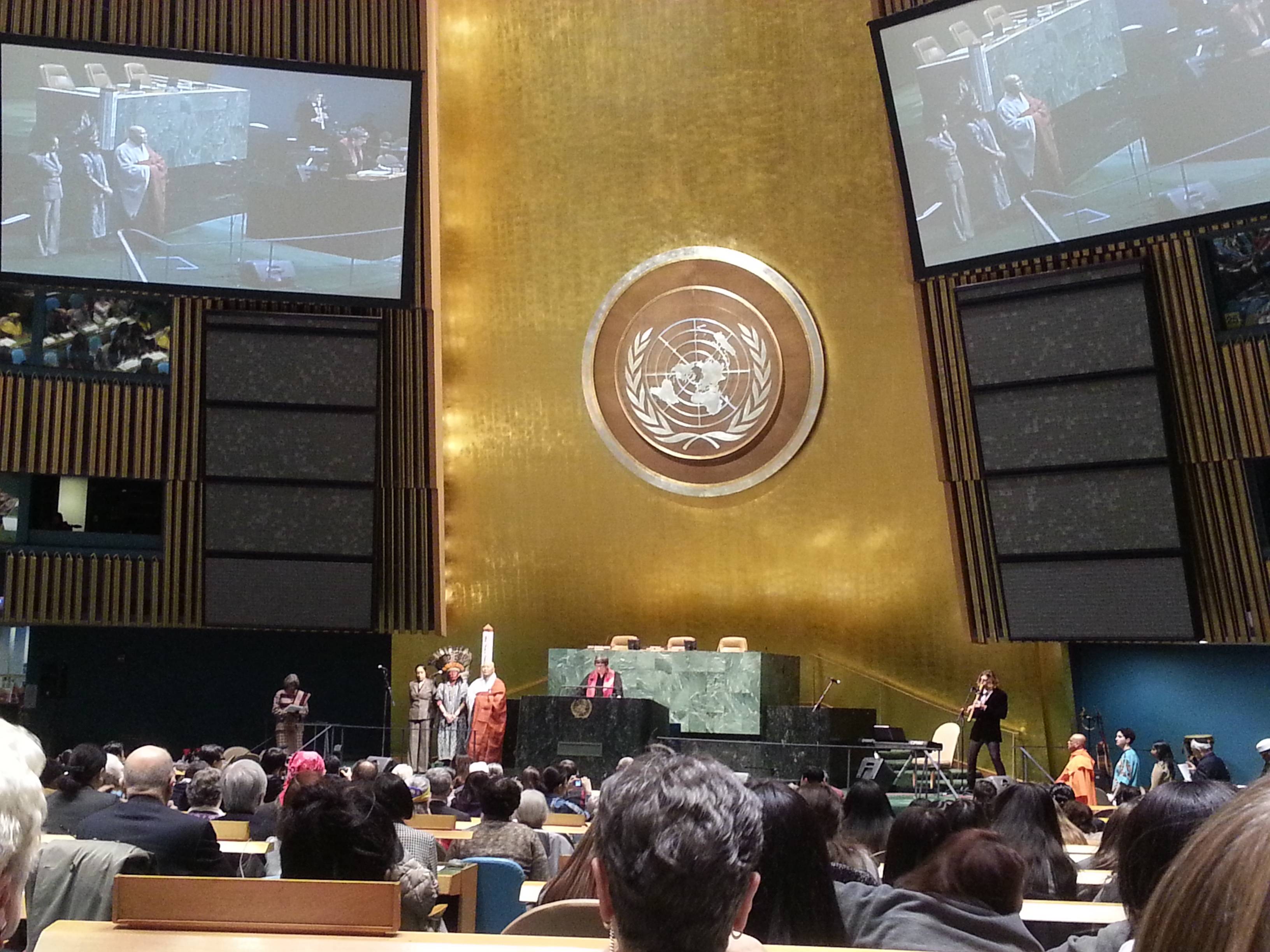Matt Cowell, our YAV attended his first UN General Assembly this week. The Presbyterian Church (U.S.A.) is accredited to the United Nations and through the Presbyterian Ministry at the United Nations advocates and engages the United Nations. Read his blog below:

Greetings from the United Nations! The General Debate of the seventieth session of the UN General Assembly is in full swing here. During this pivotal week at the opening of the debate, every member state and permanent observer state makes speeches focusing on the various issues of the day—196 speeches over the course of six days, a very time-consuming procedure when considering that some of the presentations last twenty to thirty minutes. Because a state typically discusses major relevant domestic and foreign topics, the subject matter discussed can vary from one state to another, meaning that some speeches are more engaging than others.
I have had the pleasure of sitting in on the debate over the course of two days this week, during which I heard from entities and states as varied as the European Union, Mongolia, Palestine, and Swaziland. The majority of the presentations focused on the recent passage of the Sustainable Development Goals (SDGs), part of the UN’s awaited Agenda 2030. The successor to the Millennium Development Goals established in 2000, the SDGs seek to give countries around the globe tools they need to achieve long-term economic, political, and social growth. Provisions regarding climate change, gender equality, food security, and access to education are among the seventeen issue-areas that the SDGs address, all with the goal of allowing developing countries to grow both on their own and with assistance from other states or international organizations.
Some speakers touched on a variety of topics other than the SDGs, occasionally bringing up politically charged ones. In some cases, states briefly commemorated anniversaries of important events in their histories while tying those events to current issues. At other times, states questioned the actions of others. Still other states made recommendations as to how the UN could approach certain issues more effectively, and many states called for reform within one or more of the UN’s bodies. All in all, it was a very insightful experience that allowed me to hear firsthand the ideas and concerns that are on the minds of UN members and observers.